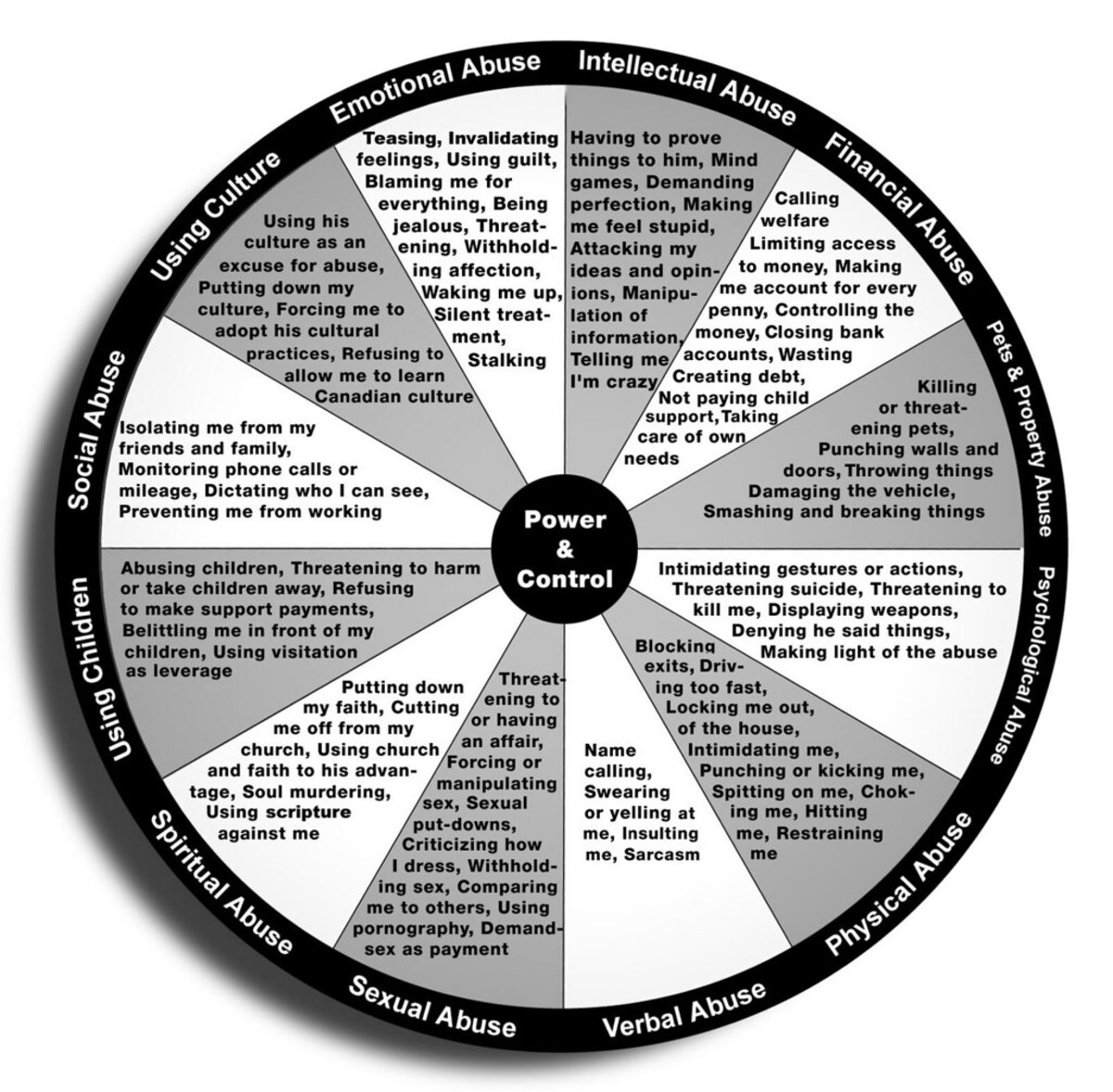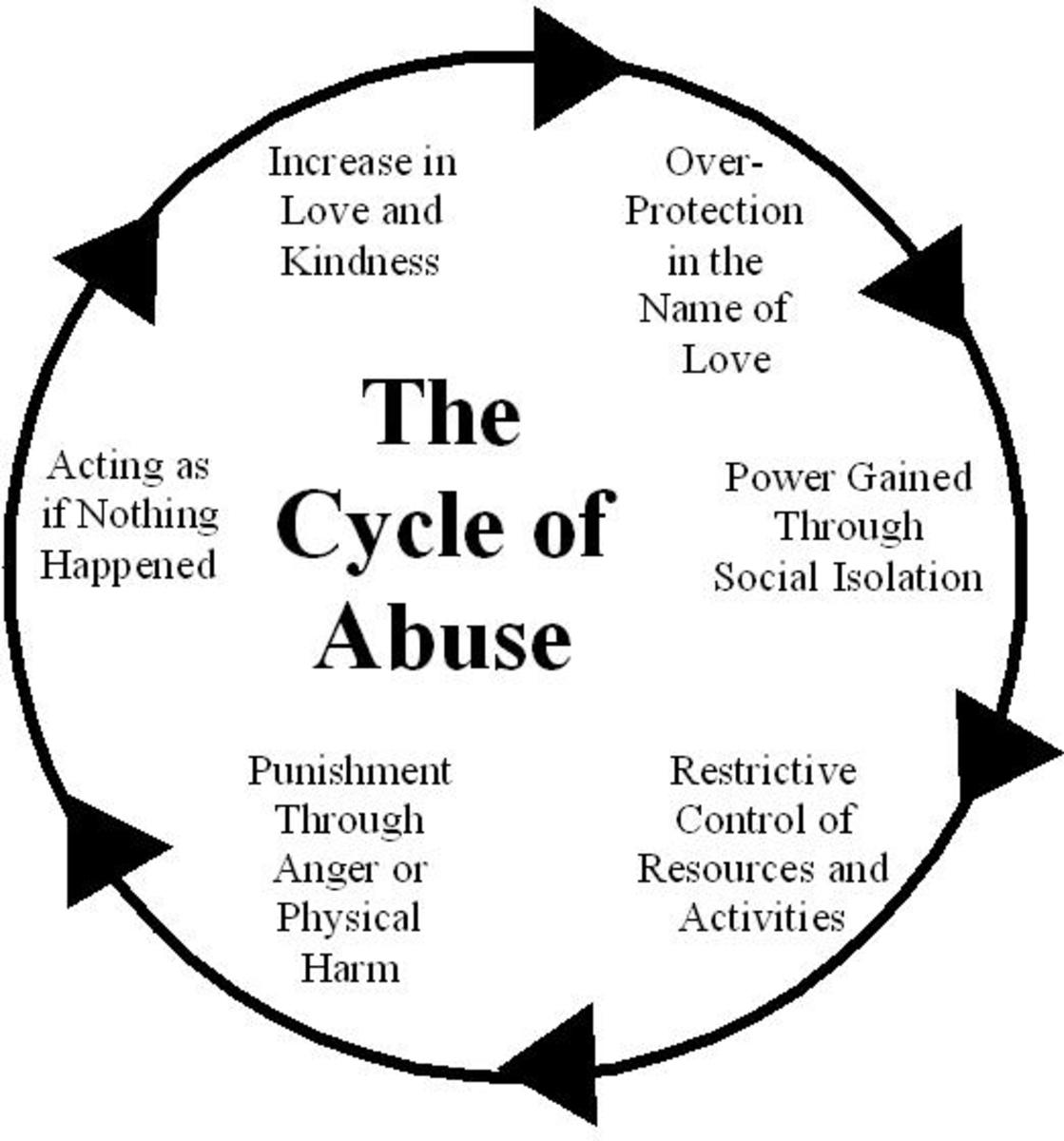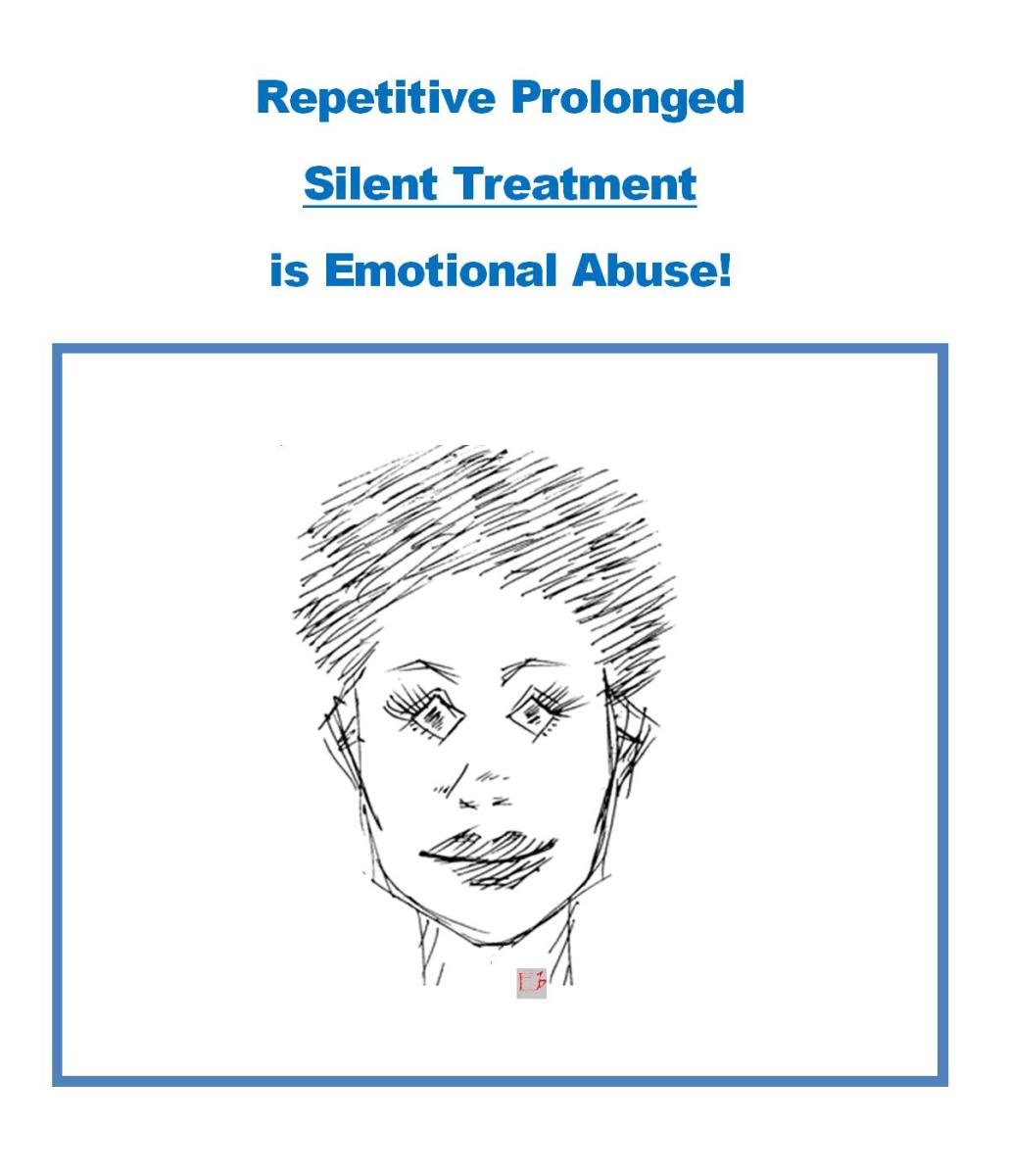About Verbal Abuse
Verbal Abuse

Verbal Abuse is Really About...
If you are in a verbally abusive relationship,you may feel pain and confusion about the way you are being treated. Once you understand and learn about what is really going on, you get let go of the fairy tale and deal with the truth about what is happening to you. There are more dynamics at play than you may have ever realized.
By becoming more self aware, you will be better able to protect yourself from continued mistreatment. The view you have of yourself, what is really going on in your relationship, and what the other person is really doing to you, may be totally different in your mind’s view from reality. Your views, your beliefs, your expectations, and your thinking are keeping you a prisoner in a relationship that in reality may be making you fearful and insecure.
Verbal abuse is really about control. One person is trying to establish and keep control over the other person. The abuser may not even consciously be aware that they are doing this. Their hurtful statements are designed to fill their own need so they can feel more powerful. It is never about the issues. It is about the interaction you are each having.
The scenario may change, but the role you each play are the same. One attacks and blames. The other defend and explain. The victim may cry, the abuser walks away. The victim tries to have a discussion, the abuser changes the subject and picks on the victim, creating the cycle again of defense, explaining, crying, and discussion. The entire interaction time and time again is irrational once you see what is really going on. The victim is being psychologically manipulated by the abuser.
The Abusers and The Victims
Some abusers are domineering and obviously demanding. Some are quietly controlling, forcing you to be submissive through their intimidation, blame, devaluation, criticizing, ignoring, denying, and difficulty they cause you. The abuser can be a person who is irritable or seldom shows their anger. They can seem quiet, or very charming to others. As soon as you learn to recognize abuse, disguised in many forms, you can learn to protect yourself from this mistreatment.
If you find yourself being called names, being accused of things, and blatantly being insulted, it becomes easy to see you are in a verbally abusive relationship. Some abusers are not as obvious. They do it in a more subtle way, and you may not be able to quite put your finger on what is happening to you and the way you are being treated. Nevertheless, these backhanded comments can leave you feeling just as bad about yourself.
When abuse is subtle, it is done in such an indirect way that the victim is not quite sure what was done to them. They may feel that something is just not quite right. More often than not, there is a feeling of being disrespected.
Common forms of subtle abuse the abuser uses:
- facial expression to show disapproval, angry, exasperation, or accusing the other partner
- sarcastic and disapproving tone of voice
- denying making any of these facial expression, or tone of voice
- hurtful statements that are said in a sincere or caring voice
- criticizing the way you look, what you say, and what you do
- inferences that you are inept, strupid, wrong, or careless
- judging your perceptions, thoughts, and feelings
- denying the validity of your beliefs, thoughts, feelings, and perceptions
- condescending remarks or jokes about your opinions, decisions, dreams, accomplishments
- put downs, insults and derogatory statements about you, your family, your job, your choices
- diminishing you by comparing you to others who they say are better than you are
- special things and achievements you do are not given any recognition
- an insensitivity to you in a time of need
- intentionally hurting you when you are celebrating something or happy about things
- talking over you and interrupting you
- twists your words or distorting the meaning of what you say
- won’t listen to what you have to say
- ignores you or gives you the silent treatment
- doesn’t share their feelings with you
- doesn’t show up for events, shows up late, or dresses inappropriately
- breaks promises or claims to forget
- won’t fulfill small requests you ask
- puts your needs second behind their own
- if they do something for you,it is with resentment make you sorry for asking them
Blatant abuse:
- humiliating you in public or private
- name calling
- threatening
- balming you
- publicly criticizing you
- accusing you
- refusing to socialize with you
- harassing you
- withholding money or excluding you from making monetary decisions
- destroying or taking your personal property
- throwing objects
What is Really Going on in an Abusive Relationship
It is important to realize what is going on your relationship and how you are really being treated.Sometimes to rationalize their relationship, the victim will think other people are worse so it is okay what the other person is doing to them. Since there are worse people, they are not dealing with an abusive person. Don’t think like this. Don’t discount your own pain.
In the beginning of a relationship, everyone is on their best behavior. This is especially true for for someone who has an abusive personality. In the beginning, they are nice. When they are secure enough that you won’t walk away, they begin to hurt you. The abuser is most likely unaware that they are being hurtful. Nevertheless, the more you let them mistreat you, even in small ways, the more they will hurt you. Abusers always need to disarm you. So after they hurt you, they may be nice for a while. When you let down your guard, and you are vulnerable again, they will look to hurt you. Abusive people are manipulative people. Many abusive people are charming. Abusive people use charm to make themselves acceptable and liked and put to doubt that they could act in a horrible way. Their charm is really superficial and is used to disguise their true feelings of anger.
Verbal abuse takes it toll on its victims verbally and physically and they sacrifice their true selves with the hopes that things will one day get better. Often the recipient of verbal abuse, never knows when the next attack is coming, and tries hard to please the other person. This can give rise to anxiety, confusion and depression. People who are subjected to verbal abuse usually suffer from much mental anguish. This is pain and hurt that bears no physical scars. It. is common for people to feel alone, and not talk to anyone about the abuse they are dealing with. Sometimes the victim is not even aware they are being mistreated. Verbal abuse is hard to describe. Depression is quite common among abused people. They often feel helpless and powerless, they lose their sense of autonomy, and self confidence.
People who are verbally abused can seek help. Support, someone to talk to, and validation about what they are experiencing are very helpful in progressing towards a more healthy self. Verbal abusers often appear nice and charming. It becomes hard for people to understand what you are going through. This makes it even more important for the victim to talk to someone.
Abused people sometimes think they are the one at fault, and while they blame themselves, they don’t understand what is really happening to themselves. It is important to realize it is the abuser who has the problem. Abusers need to recognize what they are doing, and learn how to get the emotional attention they may have never gotten.
Some abusers may be able to be rehabilitated. Some may not. But therapy is important so that you can make the determination if you should get out of the relationship,or if the abuser will seek therapy to stop their behavior. The main thing for the victim, is to make sure the abuse stops.
Verbal Abuse is Very Common
Verbal abuse is more common in relationships than many of us know. Sometimes, verbal abuse precedes physical abuse, so awareness is very important and teaching people that no abuse is acceptable.
Abuse follows a typical pattern where the relationship in the beginning is fine. Gradually the control begins creep into the relationship more and more. The victim pretty much denies these things are even happening. Abusers, on some level believe they have the right to control their partner, when they are really hiding their true feelings of low self esteem, inadequacy, and insecurity. These feelings have nothing to do with the partner. They are the abuser’s baggage.
It is important to understand what is going on with verbal abuse. In addition to controlling someone else, they make a reality that justifies their behavior. It is painful and confusing to be a victim of verbal abuse. Often the abuser project their problems on the other person. The most common projection is mental illness, so that it looks like they don’t have a problem, the victim does. The abuser is very good at blaming the other person. They will try to isolate the victim from their family and other people.
The reality is, that the abusive person has a lot of problems themselves and are having difficulty coping with life itself. To the outside world, these people appear to have their act together, but are really working very hard to disguise their emotional imbalance.
In a verbally abusive relationship, the victim is constantly trying to please the abuser. They are always trying to get the abuser to understand how they are feeling. If they are consciously aware they are being mistreated, they try to get the person to stop. But these efforts go unheard and unheeded. The truth is you are in an unhealthy relationship, and no amount of reasoning will make the person respond to your needs.
Professional counseling may be a solution. Walking away from the situation may be a solution. It is a very personal decision and no one can tell you which is the better resolve. What is important is to stop the cycle. Because nothing will change while the victim keeps getting abused. In many instances, the abuser is unaware of their own behavior, closed off to understanding your needs, and resistant to give up what they are doing. Why would they, when there are only benefit to them, and no drawbacks. It is hard to get people to change when they have so many benefits going for them. But, when the abuser is faced with the idea that they may lose the relationship, they may be motivated to change. It is hard to tell, but for sure, doing the same thing over and over again is not going to make things better for you. So take control of your own life and make a tough decision to make things better for you.
You have the ultimate power. Seek support from a mental health counselor to help you gain more self confidence, and feel better about yourself. Give yourself courage and get encouragement to do what is good for you. The power belongs to you.









